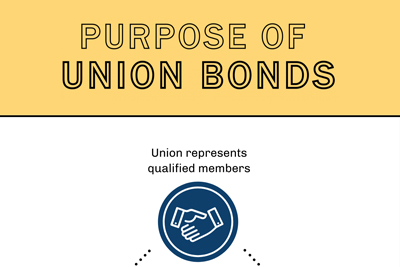Closing an Estate in Probate Court: Impact on Probate Bonds
Estimated Read Time: 4 minutes02-12-2025
Closing an estate is a crucial process in probate court that ensures all debts are paid, assets are distributed, and legal requirements are met. Whether handled through formal or informal probate, the process requires careful attention to detail from the administrator or executor.
One essential component of this process, particularly in formal probate, is the requirement of a probate surety bond. A probate surety bond, also known as a fiduciary bond, serves as a financial guarantee that the personal representative will fulfill their fiduciary duties. In this article, we will provide an overview of closing an estate and how to release a probate bond.
Understanding Probate and Estate Settlement
Probate is the legal process of settling a deceased person’s estate. It ensures that debts and taxes are paid and that assets are distributed to the rightful heirs. The probate process can either be formal, requiring court supervision, or informal, which is a streamlined process with minimal court involvement. The type of process granted varies based on the nature of the estate proceeding and if any aspect of the probate case is contested.
Probate bonds must be renewed annually for as long as the estate is open and the administrator is appointed. Once the estate is closed, the fiduciary or their attorney must furnish proof to the surety that all obligations are met and the court is allowing the bond to be released.
Steps to Closing an Estate
Pay All Debts and Distribute Net Asserts
Once appointed, a personal representative is responsible for satisfying all outstanding debts, including medical bills, loans, and credit card balances, if the creditor claims are valid. Additionally, estate taxes and any remaining income taxes must be paid to avoid legal complications.
Once debts and taxes are paid, the personal representative distributes the remaining assets according to the will. If there is no will, state intestacy laws determine how the assets are allocated among heirs.
Submit the Final Accounting
A final accounting for an estate is a detailed financial report prepared by the personal representative, outlining all transactions related to the estate’s administration. It includes an inventory of assets, payments made to creditors and taxes, and the final distribution of remaining assets to beneficiaries. This document is submitted to the probate court for approval, ensuring transparency and compliance with legal requirements before the estate is officially closed.
Closing the Estate
After the court reviews and approves the final accounting, the personal representative files a petition to close the estate. The court then issues an order officially closing the estate, releasing the personal representative from further responsibilities. This aspect of estate administration varies greatly depending on the type of probate proceeding, whether formal or informal.
Formal and Informal Probate
Formal Probate
Formal probate is necessary for complex estates, disputes over the will, or when significant debts exist. This process involves a high level of court supervision and may require multiple hearings. This type of proceeding will involve a formal order from the probate court discharging the fiduciary from their role and allowing all liability to be released from that date onward. This order must be provided to the surety company to release the surety bond from all liability, as the bond cannot be canceled without a court order.
Informal Probate
Even in informal probate, the personal representative must complete all responsibilities as required by law, which often includes a final accounting detailing asset distribution, debt payments, and tax settlements. Some courts also require these records to be shared with beneficiaries and creditors to ensure transparency. Since a probate bond serves as a financial safeguard for the estate, it cannot be released without confirmation that all obligations have been met and the estate is formally closed.
Required to Get a Probate Bond?
Going through the probate process? Don’t fret. We are experts in probate bonds and have expedited the bonding process to make obtaining probate bonds easy and efficient. Click below to get your bond today. Have any questions? Give us a call at (855) 470-0877 to speak to one of our probate bond experts.
The information provided on this blog is for general informational purposes only. It is not intended to be legal advice and should not be construed as such. Consult with a qualified legal professional if you are seeking assistance with a probate or estate matter.


